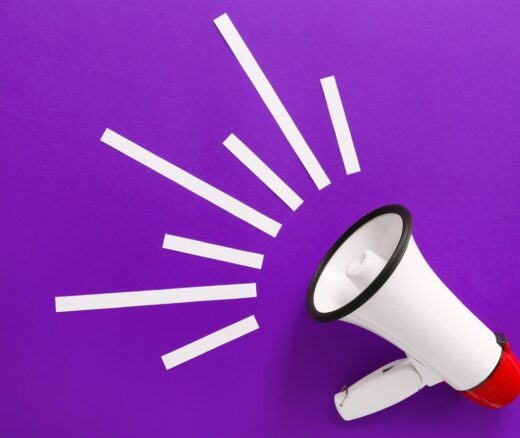
Impact: LDI Fellows Shaped Public Discussion and Public Policy in 2025
Highlighting 10 Ways LDI Fellows Put Their Research Into Action
News
Access to health care has always been a challenge in America due to lack of insurance, inadequate insurance, geographic distance, high prices, structural racism, and other reasons. Latest reports from across the country indicate this situation is getting worse in unexpected ways. Despite more people than ever now insured, insurers have transferred more cost than ever before to consumers by increasing copays and deductibles. A recent Gallup Poll found that 40% of Americans now put off needed tests and treatments because of costs. A Commonwealth Fund study found that 43% of workers with employer coverage have inadequate policies that fail to cover their health care needs.
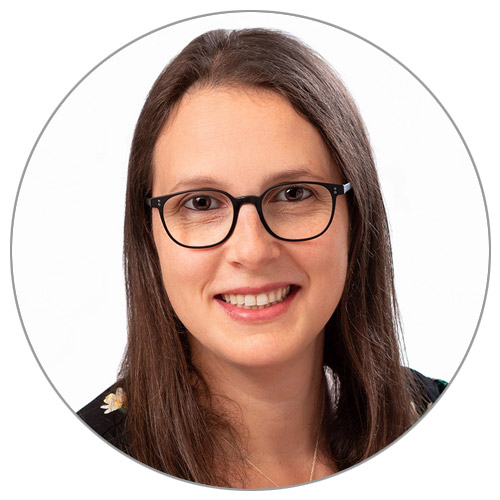
One of the ways some people cope with this is by becoming their own doctors and plugging into the various social media sites that support a growing do-it-yourself (DIY) medicine movement. Sometimes called citizens’ science, or garage medicine, its members studiously access medical literature and focus on learning and using mainstream science on themselves.
“There’s no question lack of access to health care is one of the driving forces of this phenomenon,” said Anna Wexler, PhD, an LDI Senior Fellow and Assistant Professor of Medical Ethics & Health Policy at the University of Pennsylvania Perelman School of Medicine. “The behavior is not so hard to understand. When you can’t access good quality care or you’re frustrated about the lack of an approved treatment for you or a loved one, you can get desperate and are willing to try anything–so you go looking online.”
Wexler is the founder and director of the Perelman School’s Wexler Lab and a top authority on DIY medicine trends across the country. The lab currently has three staffers and will be adding two more in April. It’s focused on the broad issues of DIY medicine as well as direct-to-consumer (DTC) health products, online patient communities, neuroscience technology, neuroethics, and alternative neurotherapies. The lab was started in 2018 when Wexler received the National Institutes of Health (NIH) Director’s Early Independence Award that provided the funding.
She is also a faculty member at the Penn Center for Neuroscience & Society and, along with that Center’s Director, Martha Farah, PhD, recently received a Dana Foundation planning grant for that philanthropic organization’s program that will open two national Centers for Neuroscience & Society by the end of this year.
Wexler has been researching DIY medicine since 2015 when she was a PhD student in the Massachusetts Institute of Technology’s (MIT) History, Anthropology, Science, Technology and Society (HASTS) program. Her recent paper, “Mapping the Landscape of Do-it-Yourself Medicine,” was published two months ago. It’s an overview of some of the national DIY medicine community’s most active areas.
The idea of medical consumer DIY treatment is not new; but in the last 20 years it has been supercharged by the internet. Digital communication systems have revolutionized the ease with which anyone can access medical literature and communicate collaboratively with hundreds or even thousands, of other consumers interested in circumventing traditional barriers to professional medical information, methodology and treatments.
Wexler’s latest paper highlights current activities in areas that include:
Over the years, medical authorities at various levels have issued many warnings about the dangers and unintended consequences of such DIY medical practices. The Food and Drug Administration (FDA), the National Academy of Science and Medicine (NAM), and the American Academy of Arts and Sciences have held meetings that have touched upon DIY medicine activity, but the tangle of questions are complex, and answers are elusive, according to Wexler.
“There are a lot of ethical issues,” Wexler said, “safety and harm being the really big one. Should we allow people to do this sort of thing? Should the sale of certain DIY devices be controlled? How? There are also community engagement issues. Do we want to reach out to the people doing these things and ensure they use them in the most ethical way possible to reduce harm? Is there some kind of engagement scientists can do in these communities to better inform them? Another issue involves the claims made by some of the companies selling DIY products in this space. What about the accuracy of their communications? And that’s just a partial list.”
The exact number of people engaged in DIY medicine experimentation is not known because the activities are so decentralized. But some sense of scale can be gained from the fact that a single Reddit.com tDCS group (subreddit) has 16,700 Members.
In another 2022 study, Wexler looked back on the operations of the Just One Giant Lab (JOGL) that has been an online hub of pandemic-related DIY experimentation. At its peak, the site had 2,000 registered members, 600 active members, and several dozen channels of DIY working groups focused on the development of COVID-19 diagnostics and preventives. Her paper noted that JOGL was the first global DIY biology initiative to establish a Biosafety Advisory Board and a detailed set of biosafety guidelines.
Looking forward, Wexler’s latest paper points out that the U.S. Supreme Court’s Dobbs v. Jackson decision, which paved the way for states to reduce abortion access, “portends a potential DIY abortion movement. Three key factors are apparent: frustrated and desperate patients, barriers to access, and the ability to exchange information online. The fourth factor—an abortion method that is relatively easy to access or replicate—may already be present: a procedure known as menstrual extraction was developed in the 1970s and involves the use of a mason jar, a tube, and a syringe. The surge of interest on social media for menstrual extraction may have the potential to spread into a DIY medical movement in locations where abortion is restricted and travel to other states may be difficult,” said Wexler.


Highlighting 10 Ways LDI Fellows Put Their Research Into Action
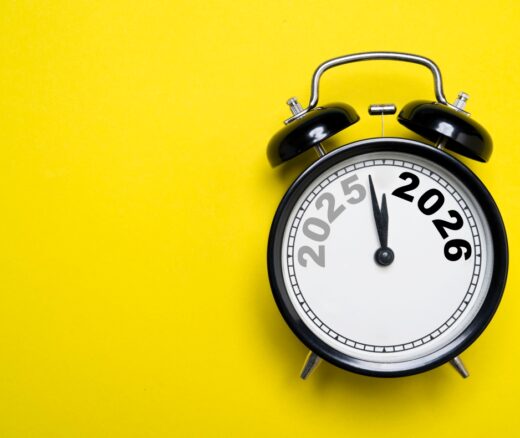
From AI-Powered Public Health Messaging to Stark Divides in Child Wellness and Medicaid Access, LDI Experts Highlight Urgent Problems and Compelling Solutions
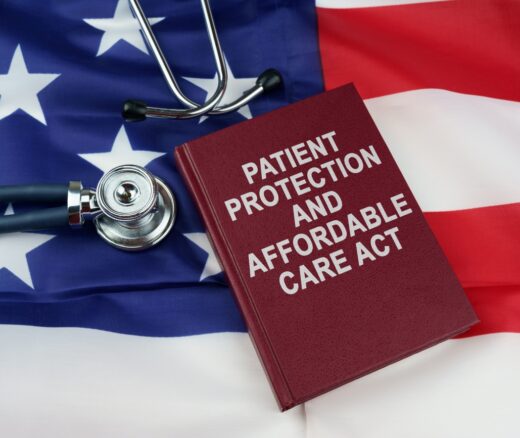
An LDI Expert Offers Three Recommendations That Address Core Criticisms of the ACA’s Model

Administrative Hurdles, Not Just Income Rules, Shape Who Gets Food Assistance, LDI Fellows Show—Underscoring Policy’s Power to Affect Food Insecurity
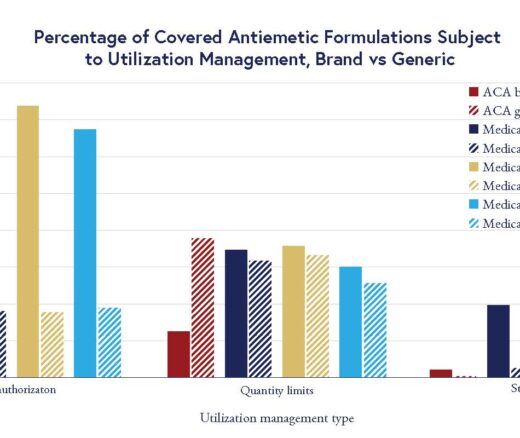
Chart of the Day: LDI Researchers Report Major Coverage Differences Across ACA and Medicaid Plans, Affecting Access to Drugs That Treat Chemo-Related Nausea
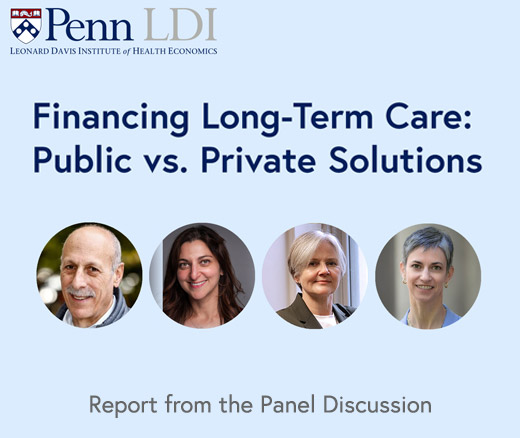
A Penn LDI Virtual Panel Looks Ahead at New Possibilities